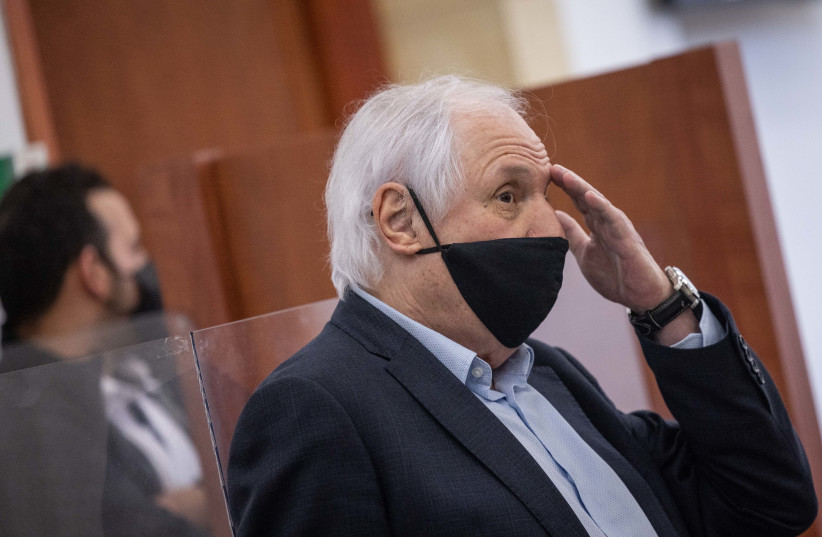In the public corruption trial of former prime minister Benjamin Netanyahu on Monday, Shlomo Filber testified that he fast-tracked in a mere three weeks controversial regulatory approvals for Bezeq that could have taken a truly apolitical official three years.
Filber is now a star state’s witness against Netanyahu, although he previously served as the former prime minister’s 2015 election campaign manager and as director-general of the Communications Ministry from 2015-2017, during key moments of the Case 4000 Bezeq-Walla Affair.
Testifying for a fifth day over the course of about two weeks, Filber supplied the prosecution with more ammunition to prove its case that Netanyahu allegedly abused his power as communications minister to help Bezeq in exchange for positive media coverage from the media outlet Walla.
Shaul Elovitch owned both Bezeq and Walla at the time, such that he could direct activities in both companies in parallel to achieve the alleged media bribery scheme.
In past hearings, Filber testified that in 2015, allegedly at Netanyahu’s instruction, he had pushed through approval of the Bezeq-Yes merger, to gain, despite objections by a vast majority of the apolitical expert-level echelon of the ministry.

However, initially part of what allowed the merger to go through was maintaining a “Chinese wall” separating various financial aspects of Bezeq and Yes.
On Monday, Filber testified that under pressure from Elovitch in 2016, and allegedly by Netanyahu’s order, he approved a rapid second round of approvals to remove many of the key financial separations between Bezeq and Yes.
Not only that, but he testified that a process, which for someone in his post who was not in on the scheme would have taken three years, he bulldozed through standard legal processes to make happen in only around three weeks.
State Prosecutor Yehudit Tirosh asked Filber if “Here, this [the approval] came at the expense of a proper process or did you shorten processes, cut corners and your independent discretion was compromised,” by orders from Netanyahu to help Elovitch?
“I pushed through a very fast process,” answered Filber. “If I had not been at the Communications Ministry, this process would have taken three years. I did it in a matter of a few weeks.”
According to the prosecution, Bezeq’s purpose is ending key financial separations between it and Yes was to benefit from using Yes’s NIS 1 billion in losses to offset paying taxes as well as to be able to offer clients a package of distinct services.
Despite Filber’s helping the prosecution case, there was still tension and inconsistencies between him and Tirosh.
Tirosh accused Filber of sometimes watering down before the court aspects of his accusations of Netanyahu, which he conveyed to the police in 2018 in order to try to present himself as a more serious professional and not a mere pawn of Netanyahu.
In some cases on Monday, Filber wilted under pressure from Tirosh and said he approved all of the accusations he made to the police against Netanyahu.
For example, he had told police that even when he was acting somewhat professionally, the process was “polluted” by his loyalty to Netanyahu.
On Monday, he eventually confirmed that sometimes his back was to the wall and that Bezeq had unusual power over him as their regulator, since they knew he would need to approve their major requests.
However, in other cases, he pushed back against Tirosh, saying that even if he was not withdrawing any of what he told police – withdrawing statements could lead to losing his immunity from jail deal – he had the right to add new pieces of the puzzle to the court.
In multiple instances, Filber has said that even if some of his motivations for helping Bezeq were potentially problematic based on his desire to follow allegedly illegal orders from Netanyahu, these were mixed with more professional and proper motivations.
Further, Filber said that when he focused more on Netanyahu before the police, this was after law enforcement had influenced him to be angry at Netanyahu, thinking the former prime minister had cut him loose.
Tirosh has tried to paint any such mixed motivation talk as a dishonest move by Filber to rehabilitate his image, whereas when he confessed to police and gave clearer accusations against Netanyahu before them, he was closer to the truth.
